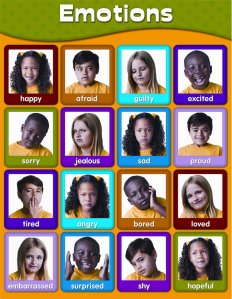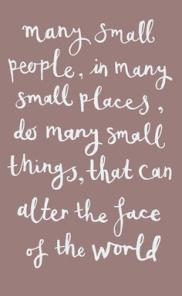
Let’s talk a bit about emotions. I’m not sure why, but most people seem more comfortable referring to them as feelings than as emotions. Perhaps the word feelings sounds more personal and less official in a way and that makes them a bit less ominous.
But whether we call them feelings or emotions, they refer to internal sensations that get stirred up when life happens. We all experience them. Interestingly however, if you do a search to find out how many feelings an average person experiences in any given day, you will find nothing. The options that come up will range from the number of thoughts a person has on an average day to the amount of calories a person should consume in an average day to how many times an average person urinates in an average day. But nothing about how many feelings a person experiences on the average.
According to dictionary.com emotion is: ‘an affective state of consciousness in which joy, sorrow, fear, hate, or the like, is experienced, as distinguished from cognitive and volitional states of consciousness.’
If this sounds a bit tough to pin down and measure to you, don’t worry. You are not alone. That is why we can’t determine something like an average amount of them each day for the average person. When it comes to emotions, for all intent and purpose, there is no real average. One person can become extremely emotional when they experience a specific event while another person experiencing the exact same event for the exact same amount of time has no emotional reaction whatsoever. In fact, one person can experience an intense emotional reaction to something one time, and later in the same day, experience no emotional reaction to the same event. How do you measure something that ambiguous and unique?

The confusion regarding emotions doesn’t only impact things like quantifying them. Many times, people find emotions difficult to identify, understand and manage; even their own. Quite often, if you ask someone how they are feeling, they do not really know. This is because as often as we experience emotions, we do not pay them much attention. Many times, this is not a very wise thing, because emotions have a funny way of piling up if they are intense and they are not dealt with.
When we think about the way we feel, we extend the feeling and compound the emotion. This would be a good thing in regard to positive emotions, like if we feel excited about an upcoming event and think about the way we feel, we intensify the excitement. It would not be a wise thing to do when it comes to negative emotions, however. But many people tend to do just that. By thinking about feeling upset, we ‘work ourselves up’ even more and become angrier.
What’s a person to do? This poses a dilemma because we are finding that it is healthful to get in touch with our emotions, yet we are saying it is not wise to think about them if they are negative.
The key is in the word “think.” Getting in touch with our feelings is not a cognitive process. Let me say that again. Nobody ever said to ‘think’ about feelings. Getting in touch means experience them – not think about them.

Just Be
Feelings equate to being, not thinking. And most of us don’t know how“to be.” That is not a concept that many of us are familiar with. In fact, it is a concept that most of us are very uncomfortable with.
Now “THAT” is something to think about.
ABOUT THE AUTHOR:
Judy is a licensed clinical social worker and has worked extensively as a counselor with children, adolescents, couples and families. Judy’s professional experience in the mental health field along with her love of writing, provide insight into real-life experiences and relationships. Her fresh voice and down-to-earth approach to living a happier, more meaningful life are easy to understand and just as easy to start implementing right away for positive results!












